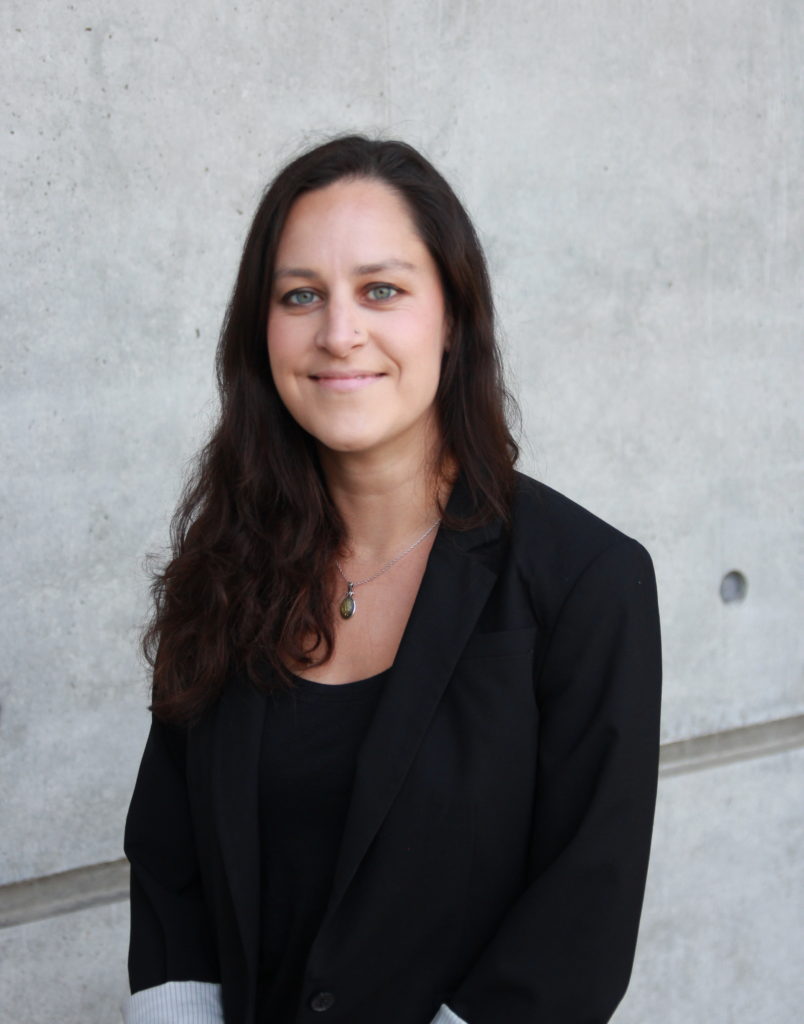
University of Oxford, DPhil '15
BIOGRAPHY
Elizabeth Chatterjee is a historian of energy and the environment, with a focus on India from 1900 to the present. Her research explores how non-Western energy histories disrupt conventional understandings of capitalist development and the social dynamics of climate change.
Chatterjee’s first book manuscript, Electric Democracy: An Energy History of India from Colonialism to Climate Change (under contract with the University of Chicago Press), traces the flows of electricity to provide an energy-centered history of India’s transforming political economy since the late colonial period. In so doing, it seeks to trace the very different dynamics underlying the later, Asian-centric phase of the Great Acceleration in human impacts on the planet. In place of the conventional emphasis on North Atlantic industrialists and private multinationals, it locates the postcolonial state and popular pressures for cheap energy at the heart of our contemporary environmental predicament.
Chatterjee’s second book-length project will provide a novel perspective on the worldwide environmental and energy crisis of the early 1970s as seen from the oil-importing global South, experimenting with how historians might deploy the multisystemic lens of Earth System Science as a methodological approach. She is exploring the links between this crisis and India’s turn to both authoritarianism and fossil fuels during this decade. At the same time, she continues to work on a wide variety of other topics in energy history, including the “infrastructural turn” in environmental history, dams that cause earthquakes, and the twentieth-century history of cow dung energy.
Chatterjee holds faculty appointments in the Committee on Environment, Geography, and Urbanization (CEGU), the Committee on Southern Asian Studies, and the Committee on International Relations. She also serves on the board of the UChicago Center in Delhi.
Recent course offerings
- Energy in World Civilization II
- Infrastructure Histories
- Environmental Histories of the Global South
- How (Not) to Save the World: The History of International Development
- The History of Indian Capitalism
- Environmental History (graduate colloquium)
Podcast interviews
- "Environmental Crisis and Recovery," History in Focus, season 2, episode 10 (June 2024).
- "India and the 1970s Energy Crisis w/ Elizabeth Chatterjee," American Prestige (September 2024).
Recent Research / Recent Publications
- “Dams and the Deep Earth: The 1967 Koyna Earthquake and Human Agency in the Anthropocene” (with Sachaet Pandey-Geeta Mantraraj), Past & Present.
- “Late Acceleration: The Indian Emergency and the Early 1970s Energy Crisis,” American Historical Review 129, no. 2 (2024).
- “Towards an Energetics of Class: Comparing Energy Protests in India and the United States,” Comparative Studies in Society and History 66, no. 3 (2024).
- “The Poor Woman’s Energy: Low-Modernist Solar Technologies and International Development, 1878–1966,” Journal of Global History 18, no. 3 (2023).
- “India’s Oligarchic State Capitalism,” Current History, April 2023.
- “Fossil Fuels from Extraction to Emissions” (with Antoine Acker, Lukas Becker, Nathalia Capellini, and Matthew Shutzer), in Emily O’Gorman, Mark Carey, Sandra Swart, and William San Martín (eds.), Routledge Handbook of Environmental History. Abingdon: Routledge, 2023.
- “New Developmentalism and Its Discontents: State Activism in Modi’s Gujarat and India,” Development and Change 53, no. 1 (2022).
- “State Capitalism in India” (with Rohit Chandra), in Mike Wright, Geoffrey Wood, Alvaro Cuervo-Cazurra, Pei Sun, Ilya Okhmatovskiy, and Anna Grosman (eds.), The Oxford Handbook on State Capitalism and the Firm. Oxford: Oxford University Press, 2022.
- “Numbers Without Experts: The Populist Politics of Quantification,” in Christopher Newfield, Anna Alexandrova, and Stephen John (eds.), The Limits of the Numerical: The Uses and Abuses of Quantification. Chicago: University of Chicago Press, 2022.
- “The Asian Anthropocene: Electricity and Fossil Developmentalism,” Journal of Asian Studies 79, no. 1 (2020).
- Editor, with Matthew McCartney, Class and Conflict: Revisiting Pranab Bardhan’s Political Economy of India. New Delhi: Oxford University Press, 2020.
- “A Climate of Scarcity: Electricity in India, 1899–2016,” in John Brewer, Neil Fromer, Fredrik Albritton Jonsson, and Frank Trentmann (eds.), Scarcity in the Modern World: History, Politics, Society and Sustainability, 1800–2075. London: Bloomsbury Academic, 2019.
- “The Politics of Electricity Reform: Evidence from West Bengal, India,” World Development 104 (2018).
- “Reinventing State Capitalism in India: A View from the Energy Sector,” Contemporary South Asia 25, no. 1 (2017).
- “Feeling Modern: The History of Emotions in Urban South Asia” (with Sneha Krishnan and Megan Eaton Robb), Journal of the Royal Asiatic Society 27, no. 4 (2017).

New York University, PhD '15
BIOGRAPHY
I am a scholar of the modern Middle East specializing in the historical geography of global capitalism, comparative studies of colonialism and empire, and environmental history.
Over the past decade of research and teaching, my overarching concern has been to address, simultaneously, two related challenges. First, as a historian of the postcolonial world, I am to pursue and develop new approaches to the critical study of global capitalism that demonstrate the continued relevance of insights and concerns that have animated the long and varied tradition of political economy. But second, drawing directly on the critiques of Eurocentrism and economic determinism that have been so central to the project of postcolonial studies, I seed to produce and teach historical narratives that unsettle the longstanding tendency to treat the “rest of the world” as mere passive recipients of ideas and processes that originate elsewhere.
My first book project, Egypt’s Occupation: Colonial Economism and the Crises of Capitalism (Stanford University Press, 2020) explores both the political economy of the Egyptian state and the role of political-economic thought in the struggle over British rule in Egypt following the occupation of 1882. For decades, Egypt has stood as a paradigmatic case of peripheral development in the capitalist world economy. From this perspective, the advent of Britain’s “veiled protectorate” after 1882 simply reinforced Egypt’s prior status as a vast plantation for the production of raw cotton and a market for industrial goods from Europe. All but obscured in such accounts is Egypt’s emergence as a key site for investment and experimentation in the worldwide financial expansion that characterized global capitalism at the close of the nineteenth century. Egypt’s Occupation tells the story of that financial boom and the crisis that followed. And the book goes on to demonstrate that this long-neglected process of financialization was of central importance to the politics of British rule. Across the four decades from the invasion of 1882 to Britain’s unilateral declaration of Egyptian independence in 1922, Egypt’s Occupation traces the complex career of the discourse I refer to as “colonial economism.” From the outset, British officials held that Egyptians, as racially distinctive human subjects, were capable of no more and no less than a bare recognition of their immediate material interests; the legitimacy of imperial rule would, accordingly, vary as a direct function of the “economic development” that British reform could deliver. In grappling with a discourse of colonial improvement that appeared to be succeeding on its own terms, Egypt’s early nationalist thinkers elaborated their own alternative accounts of the ephemeral and uneven qualities of financialization. They thereby articulated a range of rigorous, if fragmentary, critiques of the political and economic theories upon which the British had built their project of rule. In time, these efforts to find grounds for national sovereignty beyond the mere calculus of economic gain and lost shaped both the conceptual apparatus and the political strategies through which a growing nationalist movement sought to bring the occupation to an end.
Over the past few years, I have begun work on a new project, tentatively entitled Tilted Waters: The World the Suez Canal Made. Spanning more than two centuries, from the earliest European proposals to excavate a channel through the Isthmus of Suez to the Egyptian military regime’s current efforts to remake the waterway and its environs into a major processing hub and free trade zone, the book will explore the many and shifting roles that the Suez Canal has played in the production of global inequalities.
Before joining the Department of History, I was assistant professor of historical studies at The New School in New York City. I have also held fellowships at Yale University’s Program in Agrarian Studies and George Washington University’s Institute for Middle East Studies.
Recent Research / Recent Publications
-
“Peaceful Wars and Unlikely Unions: The Azhar Strike of 1909 and the Political of Comparison in Egypt,” Comparative Studies of Society and History (2022): 1-26.
-
Coauthored with Ahmad Shokr, “Capitalism in Egypt, Not Egyptian Capitalism,” in Joel Beinin, Bassam Haddad, and Sherene Seikaly, eds., A Critical Political Economy of the Middle East and North Africa (Stanford: Stanford University Press, 2020): pp. 123-142.
-
Egypt’s Occupation: Colonial Economism and the Crises of Capitalism (Stanford: Stanford University Press, 2020).
-
Coauthored with Ahmad Shokr, "Finding Value in Empire of Cotton," Critical Historical Studies Vol. 4, No. 1 (Spring 2017): 107-136.
-
"Review: John Chalcraft, Popular Politics in the Making of the Modern Middle East (Cambridge: Cambridge University Press, 2016)," Middle East Journal Volume 70, No. 4 (Autumn 2016): 688-691.
-
“Boom, Bugs, Bust: Egypt's Ecology of Interest, 1882-1914,” Antipode (February 2016).
-
“Review Essay: A New Materialism? Globalization and Technology in the Age of Empire,” International Journal of Middle East Studies Vol. 47, No. 2 (April 2015): 369-381.
-
“The Scales of Public Utility: Agricultural Roads and State Space in the Era of the British Occupation,” in Marilyn Booth and Anthony Gorman, eds., The Long 1890s in Egypt (Edinburgh: University of Edinburgh Press, 2014): 57-86.
-
“Review: Raouf Abbas & Assem El-Dessouky, The Large Landowning Class and the Peasantry in Egypt, 1837-1952, Amer Mohsen with Mona Zirki trans., (Syracuse: Syracuse University Press, 2012)," Economic History Review, 66, 2 (2013): 676-8.
-
“Review Essay: The Invisible State,” Arab Studies Journal Vol. XX, No. 1(Spring 2012): 236-245
-
“Review: Michael Ezekiel Gasper, The Power of Representation: Publics, Peasants, and Islam in Egypt (2009),” Arab Studies Journal Vol. XVIII, No. 1 (Spring 2010): 374-8.

Yale University, PhD '90
BIOGRAPHY
Amy Dru Stanley is a historian of the United States, with particular interest in law, capitalism, freedom and unfreedom, human rights, the relationship between the household and economic life, and the historical experience of moral problems. Her work has appeared in scholarly books and journals, as well as in the New York Times, the Washington Post, the Nation, Dissent, Slate, and Jacobin. She has received the Quantrell Award for Excellence in Undergraduate Teaching and the Faculty Award for Excellence in Graduate Teaching and Mentoring. In 2018, she was the jury chair for the Pulitzer Prize in history.
Recent Research / Recent Publications
The Antislavery Ethic and the Spirit of Commerce: An American History of Human Rights. Cambridge, MA: Harvard University Press, forthcoming.
From Bondage to Contract: Wage Labor, Marriage and the Market in the Age of Slave Emancipation. Cambridge: Cambridge University Press, 1998.
- Frederick Jackson Turner Prize, 1999. (For the best first book in US History, awarded by the Organization of American Historians.)
- Morris D. Forkosch Award, 1999. (For the best book in intellectual history.)
- Avery O. Craven Award, 1999. (For the best book on the era of the Civil War and Reconstruction, awarded by the Organization of American Historians.)
- Frederick Douglass Prize, 1999, honorable mention. (For the best book on the history of slavery.)
- “The Free Sea: An Antislavery Idea of Human Rights,” in Cambridge History of Human Rights, edited by Jennifer Pitts and Daniel Edelstein, 2025.
- "The Sovereign Market and Sex Difference: Human Rights in America." In American Capitalism: New Histories, edited by Sven Beckert and Christine Desan. New York: Columbia University Press, 2018.
- "Histories of Capitalism and Sex Difference." Journal of the Early Republic 36, no. 2 (Sum. 2016).
- "Slave Emancipation and the Revolutionizing of Human Rights." In The World the Civil War Made, edited by Greg Downs and Kate Masur. Chapel Hill: University of North Carolina Press, 2015.
- “Contract.” In Keywords for American Cultural Studies, 2nd ed., edited by B. Burgett and G. Hendler. New York: New York University Press, 2014.
- "Slave Breeding and Free Love: An Antebellum Argument over Slavery, Capitalism, and Personhood." In Capitalism Takes Command, edited by Michael Zakim and Gary Kornblith. Chicago: University of Chicago Press, 2012.
- "Instead of Waiting for the Thirteenth Amendment: The War Power, Slave Marriage, and Inviolate Human Rights." American Historical Review 115, no. 3 (June 2010).
- "When We Were Young." In Wayne F. Miller: Photographs 1942–1958, edited by Stephen Daiter. Brooklyn: Powerhouse Books, 2008.
- "Wages, Sin, and Slavery: Some Thoughts on Free Will and Commodity Relations." Journal of the Early Republic 24 (Sum. 2004).
- "Dominion and Dependence in the Law of Freedom and Slavery." Law & Social Inquiry 28, no. 3 (Aut. 2003).
- "Marriage, Property, and Ideals of Class." In Blackwell's Companion to American Women's History, edited by Nancy Hewitt. Oxford: Blackwell Press, 2002.
- "The Right to Possess All the Faculties that God Has Given: Possessive Individualism, Slave Women, and Abolitionist Thought." In Moral Problems in American Life, edited by Lewis Perry and Karen Halttunnen. Ithaca, NY: Cornell University Press, 1999.
- "'We Did Not Separate Man and Wife, But All Had to Work': Freedom and Dependence in the Aftermath of Slave Emancipation" in Terms of Labor: Slavery, Serfdom, and Free Labor, edited by Stanley Engerman, Stanford University Press, 1999.
- "Home Life and the Morality of the Marketplace: Slavery and Freedom, Women and Men." In The Market Revolution in America, edited by Melvyn Stokes. Charlottesville: University of Virginia Press, 1996.
- "Beggars Can't Be Choosers: Compulsion and Contract in Postbellum America." Journal of American History 78, no. 4 (Mar. 1992).
- "Conjugal Bonds and Wage Labor: Rights of Contract in the Age of Emancipation." Journal of American History 75, no. 2 (Sept. 1988).
- Writes "Freedom for Sale" for Dissent Magazine on academic freedom and American history teaching
- Quoted in the Globe and Mail article, "Donald Trump has taken aim at what he calls the ‘woke’ view of American history"
- Quoted in the NYT article, "Juneteenth Reminds Us to Think About Economic Freedom, Not Just Legal Liberty"
- Quoted in the Washington Post on polarization, the history of race in the US, and the GOP
- Comments on the Florida Board of Education's guidelines on teaching Black history in Newsweek
- Co-writes with Craig Becker for the New York Times on Amazon's opposition to mail-in ballot unionization votes
- Writes for the Washington Post on the Commerce Clause and pandemic liability protection for businesses
- Quoted in the Burlington Free Press on the history of the Confederate Flag
- Quoted in the Pittsburgh Post-Gazette on the meaning of Chicago 1968
- Chairs 2018 Pulitzer Prize for History Jury
- Writes for Slate on the abolition of slavery, theatergoing, and the right to happiness
- Named an OAH Distinguished Lecturer
- Kyle Volk, PhD'08, Praises Stanley's Scholarship on the Oxford University Press blog
- Participates on Yale Panel on the 14th Amendment
- Amy Dru Stanley and Jonathan Levy Embark on New Study of the Economy
- Coorganizes "Human Trafficking, Labor Migration, and Migration Control in Comparative Historical Perspective" conference, Pozen Family Center for Human Rights
- Writes for the New York Times Opinionator blog on the Civil War Enlistment Act
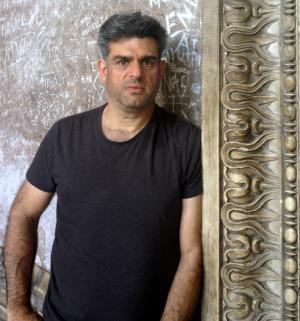
Harvard University, PhD '96
BIOGRAPHY
Emilio Kourí's main scholarly interest is in the history of rural Mexico since Independence, including society, economy, politics, culture, and the law. He is the author of A Pueblo Divided: Business, Property, and Community in Papantla, Mexico. It tells the story of the strife-ridden transformation of rural social relations in the Totonac region of Papantla during the course of the nineteenth century, paying particular attention to how the progressive development of a campesino-based international vanilla economy changed and ultimately undermined local forms of communal landholding. A Pueblo Divided received the 2005 Bolton-Johnson Prize from the Conference on Latin American History (CLAH) and the 2005 Erminie Wheeler-Voegelin Prize (Honorable Mention) from the American Society for Ethnohistory. He is also the editor of En busca de Molina Enríquez: cien años de Los Grandes Problemas Nacionales and co-editor of Revolución y exilio en la historia de México: Homenaje a Friedrich Katz.
He is at work on a three-volume history of communal landholding in Mexico. Volume One examines the evolving meaning and practice of communal land tenure in Mexican villages during the 18th and 19th centuries, focusing on changes brought about by agricultural commerce and commodification, population growth and mobility, socio-economic differentiation within and beyond villages, and the haphazard implementation of a multiplicity of liberal disentailment laws. Volume Two focuses on the Zapatista movement of the Mexican Revolution, offering a revisionist interpretation of its agrarian and political goals and practices and of its place in the land reform that would follow its demise. Volume Three explains the legal, political, and ideological origins of the collective land-grant community (ejido) created by the Mexican Revolution between 1915 and 1934. By 1992, when a constitutional amendment ended the redistribution program, more than two thirds of Mexico’s arable lands and forests were at least nominally in the hands of these land-grant communities—the most extensive state-managed land tenure transformation in the history of modern Latin America. Historians have long regarded the communal character given to ejido property as a return to forms of social organization rooted in Mexico’s indigenous past, and have considered it to be the fulfillment, at least in principle, of what villagers like Emiliano Zapata had long demanded and fought for. Against prevailing interpretations, Volume Three argues that the new ejido of the Revolution was not what country people (and especially the Zapatistas) had battled for. Rather, it was the piecemeal product of idealized notions of indigenous communal organization and historical practice hastily contrived by the "progressive" elites who won the Revolution and who were then compelled in fits and starts to make expedient agrarian reforms in order to build sorely needed popular political allegiances.
He teaches classes and seminars on land reforms, rural ecologies and social movements, indigenous societies, and the history of agrarian thought, as well as general courses on Latin American and Latino/a history, and is director of the Katz Center for Mexican Studies.
Recent Course Offerings
-
Tropical Commodities in Latin America
-
Latin American History Seminar
-
Zapatista Social Movements, Old and New
-
Agrarian Reform in Twentieth-Century Mexico
-
The History of Mexico, 1876 to the Present
-
Pre-Columbian and Early Colonial Latin America
-
US Latinos: Origins and Histories
-
Latin American Civilizations
Recent Research / Recent Publications
- "On the Mexican Ejido." Humanity 11.2.
- “Chico Franco y Nicolás Zapata.” Revista NEXOS (August 2019).
- “El alma perdida del Plan de Ayala.” Revista NEXOS (July 2019).
- "La caja de hojalata." Revista NEXOS (June 2019).
- "El ejido de Anenecuilco." Revista NEXOS (May 2019).
- "La historia al revés." Revista NEXOS (Apr. 2019).
- "Sobre la propiedad comunal de los pueblos: De la Reforma a la Revolución." Historia Mexicana (264) 66, no. 4 (Apr.–June 2017): 1,923–60.
- "La promesa agraria del artículo 27.” Revista NEXOS (Feb. 2017).
- "La invención del ejido." Revista NEXOS (Jan. 2015).
- "Claroscuros de la reforma agraria mexicana." Revista NEXOS (Dec. 2010).
- Revolución y exilio en la historia de México: Homenaje a Friedrich Katz. Coedited with Javier Garciadiego. Mexico: Ediciones Era, coedition with the Colegio de México and the Katz Center for Mexican Studies, 2010.
- Editor. En busca de Molina Enríquez: cien años de Los Grandes Problemas Nacionales. Mexico: coedition with the Colegio de México and the Katz Center for Mexican Studies, 2009.
- "Manuel Gamio y el Indigenismo de la Revolución Mexicana." In Historia de los intelectuales en América Latina, vol 2, edited by Carlos Altamirano. Buenos Aires: Katz Editores, 2010
- "John Womack: sobre historia e historiadores." Revista Temas (2008). Interview.
- "Aspectos económicos de la desamortización de las tierras de los pueblos." In España y México, ¿Historias económicas paralelas?, edited by Rafael Dobado, Aurora Gómez Galvarriato, and Graciela Márquez. Mexico City: Fondo de Cultura Económica, 2007.
- A Pueblo Divided: Business, Property, and Community in Papantla, Mexico. Stanford: Stanford University Press, 2004.
- "Interpreting the Expropriation of Indian Pueblo Lands in Porfirian Mexico: The Unexamined Legacies of Andrés Molina Enríquez." The Hispanic American Historical Review 82, no. 1 (Feb. 2002).
- "El comercio de exportación en Tuxpan, 1870–1900." In El siglo XIX en las Huastecas, México, edited by Antonio Escobar Ohmstede and Luz Carregha Lamadrid. Mexico City: Centro de Investigaciones y Esudios Superiores en Antropología Social, 2002.
- "Economía y comunidad en Papantla: reflexiones sobre 'la cuestión de la tierra' en el siglo XIX." In Estructuras y formas agrarias en México: del pasado al presente, edited by Antonio Escobar Ohmstede and Teresa Rojas Rabiela, 197–214. Mexico City: Centro de Investigaciones y Esudios Superiores en Antropología Social, 2001.
- "La vainilla de Papantla: Agricultura, comercio y sociedad rural en el siglo XIX." Signos Históricos 3 (2000).
- "Lo agrario y lo agrícola: reflexiones sobre el estudio de la historia rural posrevolucionaria." Boletín del Archivo General Agrario 3 (July 1998).
- Joins panel discuss on Mexico's presidential election, Chicago Council on Global Affairs, Jan. 28, 2019
- Delivers a talk on "Friedrich Katz Agraian Mexico," Freie Universität Berlin
- Discusses Article 27 of the Constitution of Mexico, Revista NEXOS, Feb. 2017
- Discusses agrarian reforms, "La invención del ejido," iRevista NEXOS, Jan. 2015
- Hosts the XIV Reunión Internacional de Historiadores de México as director of the Katz Center for Mexican Studies, University of Chicago
- Advised curators on the exhibit, "Researching Mexico: University of Chicago Field Explorations in Mexico, 1896–2014," Special Collections. Seonaid Valiant, PhD '14, cocurated the show.

Harvard University, PhD '99
BIOGRAPHY
I am a historian of inequality and its persistence. I specialize in the study of Brazil and Latin America, and focus particularly on informality, cities, citizenship, law, migration, race, slavery and its afterlives.
My first book, A Poverty of Rights (Stanford, 2008), examines how weak citizenship rights and residential informality came to define urban poverty, popular social struggles, and the political dynamics of inequality in modern Brazil. It received book awards from the Social Science History Association, the Urban History Association, the Conference on Latin American History, and the Brazilian Studies Association.
A volume I coedited with Bryan McCann and Javier Auyero, Cities from Scratch (Duke, 2014), explores the many ways in which poverty and informality have shaped the Latin American urban experience. My essay, "A Century in the Present Tense," explores the intellectual history of the informal city, arguing that slums and shantytowns are dynamic historical phenomena in their own right rather than perpetual symptoms of current crises. In various other essays and ongoing research, I have focused on informality's relationship to developmentalism and political liberalism, slavery, racial inequality in law and urban space, criminal law, internal migrations, and the relationship between the urban poor and Brazil’s political left.
Along with Brazilian historian Keila Grinberg, I have edited a volume entitled The Boundaries of Freedom, which brings together essays by leading Brazilian and Brazilianist scholars of slavery and its afterlives. My own essay, “Slavery, Freedom and the Relational City,” focuses on how unfreedoms born of slavery continued to bind urban free and freedpeople during Brazil’s age of abolition.
My current book, Intimate Inequalities: Urbanism, Slavery, and Bounded Freedom in a Brazilian City, explores the historical co-evolution of urbanism and informality. The book is based in Recife, Brazil, a northeastern city that came to be seen as both the capital of Brazilian underdevelopment and the incubator of some of the country's most innovative social and cultural movements. Recife originated as a slave city, and the social and power relations that had sustained slavery continued to structure it long after abolition in 1888. Like many other cities across the globe, Recife evolved as a place where modern technologies, economies, and liberal institutions coexisted with and depended upon urban informality. Formal institutions and economies were embedded in an essentially relational city, in which personal connections mediated economic and political life and deep inequality structured vital (and often violent) intimate interdependencies. In the twentieth century, relational power proved remarkably adaptable, inhabiting liberal institutions and radical social movements, structuring "political society," and doing much to explain both social mobility and inequality's resilience. In exposing the microhistory of this phenomenon in Recife, I explore the emergence of urban informality as part and parcel of modern governance and bring into a focus a paradigm of urban modernity that shapes city life across the globe.
Other ongoing projects focus on the "Rights to the City" movement in law, political philosophy, and practice; and the global history of urban informality through a collaborative project entitled "La Ville informelle au XXe siècle: politiques urbaines et administration des populations."
At Chicago, I am part of the Faculty Advisory Committees for the Mansueto Institute for Urban Innovation, the Art and Architecture Committee and the Latin America Faculty Working Group; and I am a Faculty Affiliate at the Center for Latin American Studies and the Center for the Study of Race, Politics, and Culture. Outside of the University, I serve on the editorial boards of Past & Present and the Journal of Latin American Studies, as well as the international Advisory Committee for the Centro de Estudos da Metrópole in São Paulo and the board of the Urban History Association. My teaching focuses both on my core research interests and on the larger histories of Brazil, Latin America, cities, and social inequality. Before coming to Chicago, I taught at Amherst College and Northwestern University.
Recent Research / Recent Publications
- The Boundaries of Freedom: Slavery, Abolition, and the Making of Modern Brazil, co-edited with Keila Grinberg. Cambridge University Press, 2022.
- Cities from Scratch: Poverty and Informality in Urban Latin America, co-edited with Bryan McCann, and Javier Auyero. Durham, NC: Duke University Press, 2014.
- A Poverty of Rights: Citizenship and Inequality in Twentieth-Century Rio de Janeiro. Stanford: Stanford University Press, 2008 (paperback, 2011).
- The Boundaries of Freedom: Slavery, Abolition, and the Making of Modern Brazil, co-edited with Keila Grinberg, in production, Cambridge University Press.
- “Historicizing Informal Governance in 20th Century Brazil,” Contemporary Social Science, May 2021.
- "A ética do silêncio racial no contexto urbano: políticas públicas e desigualdade social no Recife, 1900-1940," Anais do Museu Paulista, 28 (2020): 1-45.
- “From the Mocambo to the Favela: Statistics and Social Policy in Brazil’s Informal Cities,” Histoire et Mesure 34, no. 1 (2019): 15-40.
- “Favelas and Politics in Brazil, 1890-1960,” in William Beezley, ed., Oxford Research Encyclopedia, Latin American History, Oxford University Press, 2019.
- "Urban Informality and the Paradoxes of Developmental State Building," in State and Nation Making in Latin America and Spain: The Rise and Fall of the Developmental State, edited by Miguel Centeno and Agustín Ferraro. Cambridge: Cambridge University Press, 2018.
- "Ethos and Pathos in Millennial Brazil." Latin American Research Review 53, no. 2 (June 2018): 394–402.
- "Law, Silence and Racialized Inequalities in the History of Afro-Brazil," with Keila Grinberg and Hebe Mattos. In Afro-Latin American Studies: An Introduction, edited by Alejandro de la Fuente and George Reid Andrews. Cambridge: Cambridge University Press, 2018, 130–78.
- "Beyond Insurgency and Dystopia: The Role of Informality in Brazil’s Twentieth-Century Urban Formation." In Public Goods versus Economic Interests: Global Perspectives on the History of Squatting, edited by Freia Anders and Alexander Sedlmaier. New York: Routledge, 2016, 122–49.
- "The Red Menace Reconsidered: A Forgotten History of Communist Mobilization in Rio's Favelas, 1945–1964." Hispanic American Historical Review 94, no. 1 (2014): 1–33.
- "Urban History." In Oxford Bibliographies Online (2013)
- "Democracy, Thuggery, and the Grassroots: Antoine Magarinos Torres and the União dos Trabalhadores Favelados in the Age of Carioca Populism." Nuevo Mundo–Mundos Nuevos, Colloquium: "Repensando los populismos en América Latina," February 2013.
- "Partindo a cidade maravilhosa" (Dividing the Marvelous City). In Quase cidadão: histórias e antropologias da pós-emancipação no Brasil, edited by Flávio dos Santos Gomes and Olívia Maria Gomes da Cunha. Rio de Janeiro: Editora da Fundação Getúlio Vargas, 2007, 419–50.
- "Direitos por lei, ou leis por direito?" (Rights by Law or Laws by Right?). In Direitos e justiças no Brasil: Histórias plurais, edited by Silvia Lara and Joseli Mendonça, 417–56. São Paulo: UNICAMP Press, 2006.
- "Slandering Citizens: Insults, Class and Social Legitimacy in Rio de Janeiro's Criminal Courts." In Honor, Status, and the Law in Modern Latin America, edited by Sueann Caulfield, Lara Putnam, and Sarah Chambers, 176–200. Durham, NC: Duke University Press, 2005.
- "Quase Pretos de Tão Pobres? Race, Class, and Criminal Justice in Rio de Janeiro." Latin American Research Review 39, no. 1 (February 2004): 31–59.
- Profiled on BBS Brasil on teaching Brazilian history
- Part of the core team of La Ville informelle au XXe siècle
- Discusses contemporary urban studies with Marco Garrido, Dialogo, Winter 2018
- Discusses Urban Poverty in Latin America [video, 3 minutes]
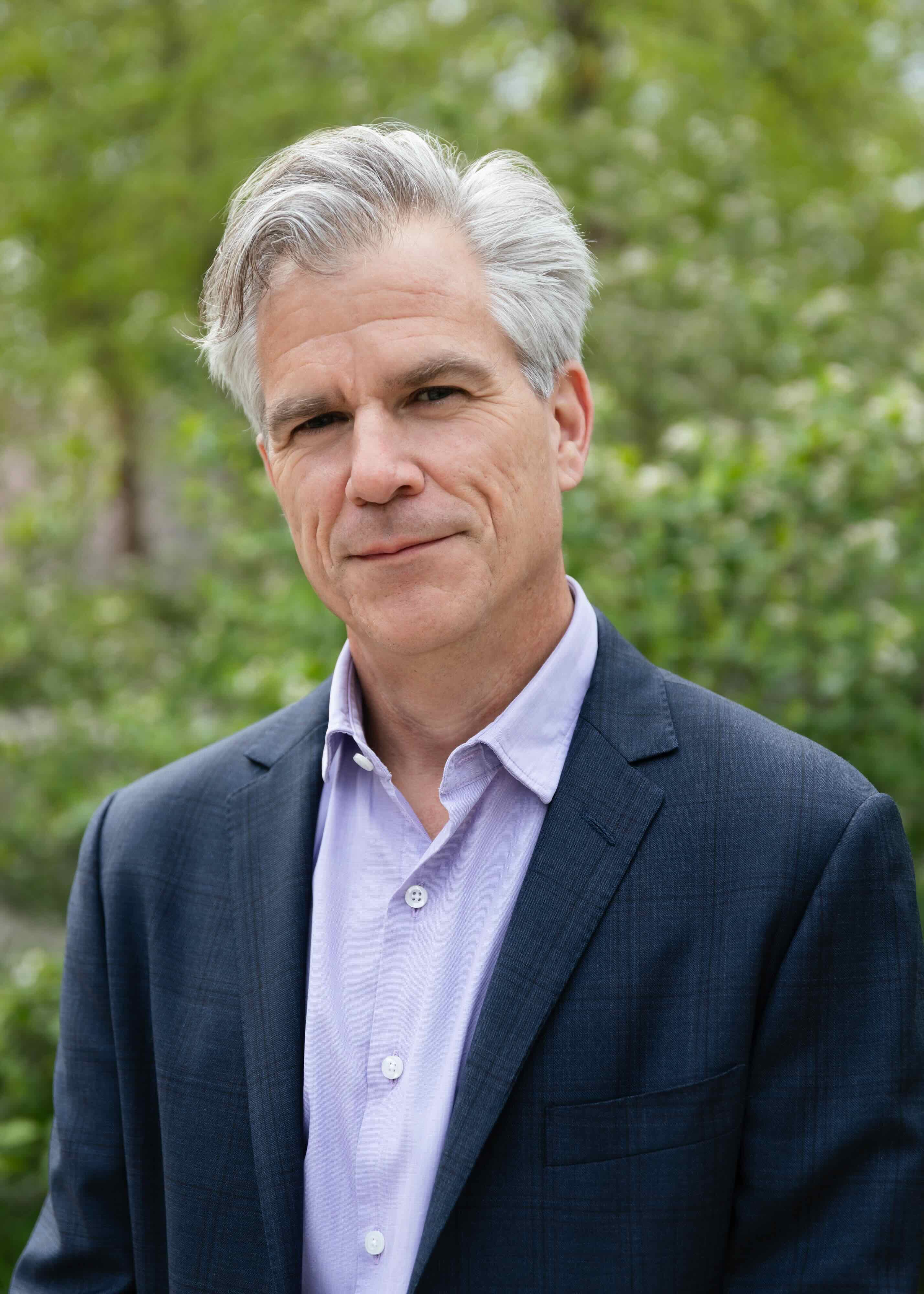
Columbia University, PhD '02
BIOGRAPHY
Paul Cheney is an historian of Europe with a specialization in old regime France and its colonial empire. Before beginning his PhD training in history at Columbia University, he studied political economy at the New School for Social Research. He has taught at Columbia University, the European College of Liberal Arts (Berlin), and the Queen's University of Belfast.
The unifying element of Professor Cheney’s work is an interest in early modern capitalism, and in particular the problem of how modern social and political forms gestated within traditional society. Old regime France serves as an excellent case study in this problem because of the way in which it combined real economic dynamism with deep-seated political and social impediments to growth. He addresses France’s integration into a globalized early modern economy in a methodology diverse way, drawing on intellectual, economic, and social history. His first book, Revolutionary Commerce: Globalization in the French Monarchy (Harvard University Press, 2010), examined how French philosophes, merchants, and administrators understood the adaptability of the French monarchy to the modernizing forces of primitive globalization. Currently, he is working on a second book entitled, Cul de Sac: Patrimony, Capitalism, and Slavery in French Saint-Domingue (University of Chicago Press, 2017), a micro-history of one plantation in France’s richest colony. He has published in such journals as The William and Mary Quarterly, Past & Present, Dix-Huitième siècle, and Les Annales historiques de la révolution française.
Recent Graduate Courses
- The French Revolution
- Old Regime France
- Atlantic Worlds, c. 1700–1800
- Political Economy and the Invention of Society, c. 1680–1830
- Montesquieu and the Enlightenment, with Robert Morrissey, Department of Romance Languages and Literatures
- Revolutionary Culture in Eighteenth-Century France and America, with Eric Slauter, Department of English
Recent Research / Recent Publications
- Cul de Sac: Patrimony, Capitalism, and Slavery in French Saint-Domingue. Chicago: University of Chicago Press, 2017. Published in French as Cul de Sac: Une Plantation à Saint-Domingue au XVIIIe siècle. Arthème Fayard, 2022.
- Revolutionary Commerce: Globalization and the French Monarchy. Cambridge, MA: Harvard University Press, 2010.
- “The Capitalism and Slavery Debate: Land, Labor, and Capital,” Critical Historical Studies 12, no. 1 (2025): 1–22.
- “Inheritance and Incest: Toward a Lévi-Straussian Reading of Montesquieu’s De l’esprit des lois,” History and Theory 64.1 (2025): 46–74. (open access)
- “Le Débat sur capitalisme et esclavage : un débat inachevé,” In Travail servile et dynamiques économiques XVIe-XXIe siècle, edited by Mendes, Almeida, Conchon, Anne, Alessandro Stanziani, and Myriam Cottias, 97–116. Paris: IGPDE-Comité pour l’histoire économique et financière de la France, 2024.
- “Political Economy,” in The Cambridge Companion to Montesquieu, eds. Keegan Callanan and Sharon Krause, Cambridge Companions to Philosophy (Cambridge University Press: 2023), 216-31. (Open access)
- "István Hont, the Cosmopolitan Theory of Commercial Globalization, and Twenty-First-Century Capitalism." Modern Intellectual History (15 March 2021): 1-29.
- "The French Revolution’s Global Turn and Capitalism’s Spatial Fixes." In "Forum: The French Revolution is Not Over." Special edition, Journal of Social History 52, no. 4 (Summer 2019).
- "Haiti's Commercial Treaties: Between Abolition and the Persistence of the Old Regime." In Balance of Power, Balance of Trade: the Politics of Commercial Treaties in the Eighteenth Century. Edited by Antonella Alimento and Koen Stapelbroek. London: Palgrave Macmillan, 2017.
- "Commerce." In The Cambridge Companion to the French Enlightenment. Edited by Daniel Brewer. Cambridge: Cambridge University Press, 2014. (Open access)
- "Aufklärung und die politische Ökonomie des Kolonialismus.” In Der moderne Staat und „le doux commerce”–Staat, Ökonomie und internationales System im politischen Denken der Aufklärung. Edited by Olaf Asbach. Baden-Baden: Nomos, 2014.
- With Alan Forrest, Lynn Hunt, Mathias Middel, and Karine Rance. "La révolution française à l'heure du Global Turn." Annales historiques de la Révolution française 374 (Dec. 2013). [link requires subscription access].
- With Loïc Charles. "The Colonial Machine Dismantled: Knowledge and Empire in the French Atlantic." Past and Present 219 (May 2013). [link requires subscription access]
- "A Colonial Cul de Sac: Plantation Life in Wartime Saint-Domingue, 1775-1783." Radical History Review: Special issue Haitian Lives /Global Perspectives 115 (Win. 2013): 45–54. [link requires subscription access]
- "A False Dawn for Enlightenment Cosmopolitanism? Franco-American Trade during the American War of Independence." The William and Mary Quarterly 63 (July 2006): 459–84. [link requires subscription access]
- "L'Histoire du commerce." In Le Cercle de Vincent de Gournay: savoirs économiques et pratiques administratives en France au milieu du xviii siècle. Edited by Loïc Charles, Frédéric Lefebvre, and Christine Théré. Paris: INED, 2011.
- "Finances, Philosophical History and the 'Empire of Climate': Enlightenment Historiography and Political Economy." Historical Reflections 31, no. 1 (2005): 141–67. [link requires subscription access]
- "Les économistes français et l'image de l'Amérique: l'essor du commerce transatlantique et l'effondrement du 'gouvernement féodal'." Dix-huitième siècle 33 (2001): 229–43.
- "Constitution and Economy in David Hume's Enlightenment." In David Hume's Political Economy. Edited by Margaret Schabas and Carl Wennerlind. London: Routledge, 2008.
- "Lumières écossaises." In Dictionnaire électronique Montesquieu. Edited by the École normale supérieure de Lyon, pour le compte de l’Institut d’histoire de la pensée classique. February 2008 (September 2013, 2nd ed.).
- Awarded the Society for French Historical Studies' 2018 Gilbert Chinard Prize for Cul de Sac.
- Receives NEH grant to conduct a summer seminar for college and university teachers in July 2018.
- Published Cul de Sac: Patrimony, Capitalism, and Slavery in French Saint-Domingue (Chicago, 2017)
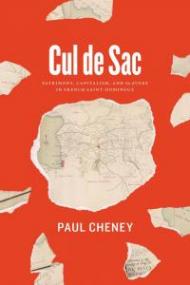
- Delivers plenary lecture at Oxford University, United Kingdom
- Discusses his latest research on Saint-Domingue/Haïti at Aarhus University
- Invited to be a visiting professor the Ecole des Hautes Etudes en Sciences Sociales, Centre de Recherches Historiques, spring 2016
- Organizes conference on "Political Economy in the Age of Enlightenment and Revolution: Interdisciplinary Approaches"
- Collaborates with Parisian scholar on Colonial Plantation Economy
- “The French Revolution,” radio interview on WGN Chicago, Extension 720, March 22, 2011.
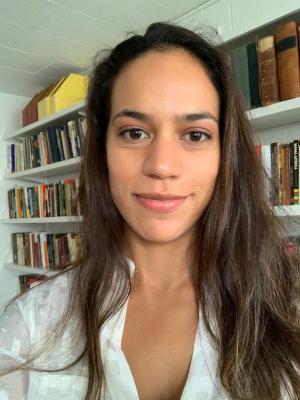
University of Virginia, PhD '15
BIOGRAPHY
Mary Hicks is a historian of the Black Atlantic, with a focus on transnational histories of race, slavery, capitalism, migration and the making of the early modern world. Her first book, Captive Cosmopolitans: Black Mariners and the World of South Atlantic Slavery, 1721-1835, reimagines the history of Portuguese exploration, colonization and oceanic commerce from the perspective of enslaved and freed black seamen laboring in the transatlantic slave trade. As the Atlantic world’s first subaltern cosmopolitans, black mariners, she argues, were integral in forging a unique commercial culture that linked the politics, economies and people of Salvador da Bahia with those of the Bight of Benin.
More broadly, she seeks to interrogate the multiplicity of connections between West Africa and Brazil through the lens of mutual cultural, technological, commercial, intellectual and environmental influences and redefine how historians understand experiences of enslavement and the middle passage. In addition to investigating the lives of African sailors, she also explores the cultural and religious sensibilities of enslaved and freed African women in living in 19th century Salvador da Bahia. Along these lines, her second book will detail the emergence and elaboration of new gendered and racialized subjectivities in the wake of Portugal’s initiation of trade with West Africa in the fifteenth century.
Prof. Hicks received her B.A. from the University of Iowa and her Ph.D. from the University of Virginia, where she was a recipient of the Jefferson Fellowship. She has also received the Ford Foundation Dissertation Fellowship and the Mamolen Fellowship at the Hutchins Center at Harvard University. She is the winner of the Southern Historical Association’s Latin American & Caribbean Section Dissertation Prize and been a finalist for the CGS/Proquest Distinguished Dissertation Award for the Humanities and Fine Arts.
Recent Research / Recent Publications
-
Captive Cosmopolitans: Black Mariners and the World of South Atlantic Slavery, 1721-1835 (under contract with Omohundro Institute of Early American History & Culture for The University of North Carolina Press), forthcoming
-
“Transatlantic Threads of meaning: West African Textile entrepreneurship in Salvador da Bahia, 1770- 1870,” Slavery & Abolition 41:4 (December 2020), 695-722
-
“Financing the Luso-Atlantic Slave Trade: Collective Investment Practices from Portugal to Brazil, 1500-1840,” Journal of Global Slavery 2:3 (2017), 273-309
-
“João de Oliveira’s Atlantic World: Mobility and Dislocation in Eighteenth-Century Brazil and the Bight of Benin,” in The Many Faces of Slavery: New Perspectives on Slave Ownership and Experiences in the Americas Eds. Lawrence Aje and Catherine Armstrong, (London: Bloomsbury Press, 2019)
-
“Middle Passage,” in 400 Souls, Eds. Keisha N. Blain and Ibram X. Kendi (New York: Basic Books, 2021)
-
Review of Sharla Fett’s Recaptured Africans: Surviving Slave Ships, Detention and Dislocation in the Final Years of the Slave Trade in Black Perspectives (November 16, 2018)
-
Review of Hazel V. Carby’s Imperial Intimacies: A Tale of Two Islands in Black Perspectives (February 5, 2021)
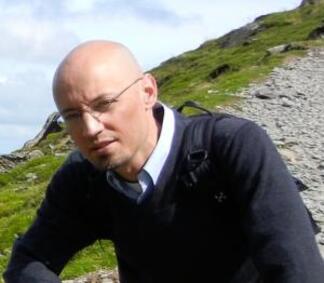
University of Chicago, PhD '05
BIOGRAPHY
My first book, Enlightenment's Frontier: the Scottish Highlands and the Origins of Environmentalism (Yale, 2013) investigates the environmental roots of the Scottish Enlightenment. What was the place of the natural world in Adam Smith's famous defense of free trade? This perspective recovers the forgotten networks of improvers and natural historians that sought to transform the soil, plants, and climate of Scotland in the eighteenth century. The Highlands offered a vast outdoor laboratory for rival liberal and conservative views of nature and society. But when the improvement schemes foundered toward the end of the century, northern Scotland instead became a crucible for anxieties about overpopulation, resource exhaustion, and the physical limits to economic growth. In this way, the rise and fall of the Enlightenment in the Highlands sheds new light on the origins of environmentalism.
My second book, Green Victorians: The Simple Life in John Ruskin's Lake District (Chicago, 2016), coauthored with Vicky Albritton, considers the problem of the Anthropocene from the perspective of a late Victorian utopian movement. Green Victorians tells the story of the first "post-carbon" society in Britain, a community in the English Lake District dedicated to Arts and Crafts industry and simple living. This experiment was galvanized by precocious anxieties about anthropogenic climate change, voiced by the eccentric polymath John Ruskin. He convinced his supporters to reject coal and steam in favor of renewable energy and labor-intensive handicraft production. By creating a new culture of sufficiency, Ruskin and his followers sought to demonstrate that a simple material life was still compatible with a great measure of cultural creativity and intellectual freedom. Green Victorians explores the radical and material experience of Ruskin's community without shying away from the darker side of the movement, including its technophobia and paternalism.
My current research deals with a set of closely related themes in environmental history, history of science, and political economy. The British Industrial Revolution saw the birth of the first fossil fuel economy. At the same time, geologists transformed the public understanding of the earth's interior and deep past. My new project sets out to show that these developments—fossil growth and fossil science—converged to produce a fundamental reorientation of politics and culture towards cheap energy and cornucopian growth.
My research has been funded by fellowships from the Institute of Historical Research in London, the Andrew W. Mellon Foundation, the Huntington Library in Los Angeles, the American Council for Learned Societies, and the Notre Dame Institute for Advanced Study.
Recent Research / Recent Publications
- Fredrik Albritton Jonsson and Carl Wennerlind, Scarcity: Economy and Nature in the Age of Capitalism, Harvard University Press, 2023.
- Coauthor with Vicky Albritton. Green Victorians: The Simple Life in John Ruskin's Lake District. Chicago: University of Chicago Press, 2016. Ruskin Society Book Prize 2016 (runner up).
- Enlightenment's Frontier: The Scottish Highlands and the Origins of Environmentalism. New Haven, CT: Yale University Press, 2013.
- Editor with John Brewer, Neil Fromer, and Frank Trentmann, Scarcity in the Modern World: History, Politics, Society and Sustainability 1800-2075, Bloomsbury Press: 2019
- “Ruskin in the Year of COVID 19,” Ruskin Birthday Reflections, Reilly Center, Notre Dame, February 8, 2021
- Contributor to Roundtable on Duncan Kelly, Politics and the Anthropocene for H-Diplo.
- “Natural History” in Old Ways New Roads, ed. Nigel Leask et al (Edinburgh: Birlinn 2021), museum catalogue for 2020 exhibition about Highland tour at the Hunterian Museum in Glasgow
- "The Coal Question Before Jevons." Historical Journal 62, no. 2 (June 2019).
- "Growth in the Anthropocene." In Scarcity in the Modern World: History, Politics, Society, and Sustainability, 1800–2075, edited by John Brewer, Neil Fromer, Fredrik Albritton Jonsson, and Frank Trentmann. London: Bloomsbury Press, 2019.
- “Roundtable: The Anthropocene in British History [with Chris Otter, Alison Bashford, John Brooke, and Jason Kelly]." Journal of British Studies 57, no. 3 (July 2018): 568–96.
- "Abundance and Scarcity in Geological Time 1784–1844." In Nature, Action, and the Future: Political Thought and the Environment, edited by Katrina Forester and Sophie Smith, 70–93. Cambridge: University of Cambridge Press, 2018.
- "Political Economy." In Historicism and the Human Sciences in Victorian Britain, edited by Mark Bevir, 154–85. Cambridge: Cambridge University Press, 2017.
- "Scottish Tobacco and Rhubarb: The Natural Order of Civil Cameralism in the Scottish Enlightenment." Eighteenth-Century Studies 49, no. 2 (Win. 2016): 129–47
- "Adam Smith and Enlightenment Studies." In Adam Smith: His Life, Thought, and Legacy, edited by Ryan Patrick Hanley, 443–60. Princeton, NJ: Princeton University Press, 2016.
- "Island, Nation, Planet: Malthus and the Enlightenment." In New Perspectives on Malthus, edited by Robert J. Mayhew, 128–54. Cambridge: Cambridge University Press, 2016.
- "Climate Change and the Retreat of the Atlantic: The Cameralist Context of Pehr Kalm's Voyage to North America 1748–51" William and Mary Quarterly 72, no. 1 (Jan. 2015).
- "The Origins of Cornucopianism: A Preliminary Genealogy." Critical Historical Studies 1, no. 1 (Spr. 2014).
- "Adam Smith in the Forest." In The Social Lives of the Forests, edited by Susanna B. Hecht, Kathleen D. Morrison, and Christine Padoch. Chicago: University of Chicago Press, 2013.
- "Natural History and Improvement: The Case of Tobacco." In Mercantilism Reimagined: Political Economy in Early Modern Britain and Its Empire, edited by Philip J. Stern and Carl Wennerlind. Oxford: Oxford University Press, 2013.
- "A History of the Species?" Review essay of Deep History: The Architecture of Past and Present, edited by Andrew Shyrock and Daniel Lord Smail, History and Theory 52, no. 3 (Oct. 2013).
- "The Industrial Revolution in the Anthropocene." Journal of Modern History 83, no. 3 (Sept. 2012).
- "Rival Ecologies of Global Commerce: Adam Smith and the Natural Historians." American Historical Review 115, no. 5 (Dec. 2010).
- "Prudence and Magnanimity: Roundtable on Ryan Hanley's Adam Smith and the Character of Virtue." The Art of Theory: Conversations in Political Philosophy (Nov. 2010).
- "Enlightened Hands: Managing Dexterity in British Medicine and Manufactures 1760–1800." In Body Parts: Critical Explorations in Corporeality, edited by Christopher Forth and Ivan Crozier. Lanham, MD: Lexington Books, 2005.
- "The Physiology of Hypochondria in Eighteenth-Century Britain." In Cultures of the Abdomen: Dietetics, Digestion, and Fat in the Modern World, edited by Christopher E. Forth and Ana Cardin-Coyne. Palgrave Macmillan, 2005.
- Co-authors "Reducing the Carbon Footprint of Academic Travel," Inside Higher Ed, Apr. 18, 2019
- Launches planetary history research project with Dipesh Chakrabarty
- Participates in Q&A on how to teach the Anthropocene, EuropeNow, with syllabus
- Discusses Amitav Ghosh’s recent book, The Great Derangement: Climate Change and the Unthinkable, in an article in the Guardian.
- Coauthors, with Vicky Albritton, Green Victorians: the Simple Life in John Ruskin's Lake District (Chicago, 2016). Ruskin Society Book Prize 2016 (runner up).
- Coorganizes "Climate Change: Disciplinary Challenges to the Humanities and Social Sciences" at the Neubauer Collegium
- Delivers the inaugural T. C. Smout Lecture in Scottish History on the "Enlightenment's Frontier: The Scottish Highlands and the Origins of Environmentalism" [audiocast, 55 minutes
- Talks at the Social Life of Forests Conference on "Invisible Forests: Natural Knowledge in the Making of Classical Economics" [video, 27 minutes]
- Co-author with Rachael Osborn, Mark Fiege and Will Wright, Amicus brief of environmental historians, Juliana v. United States, February 22, 2019.

Harvard University, PhD' 90
BIOGRAPHY
I am a historian of Britain and its Empire, of comparative revolutions, comparative empires, and of northern Europe more broadly. I am both a deeply committed archival historian and a scholar who believes profoundly that historians should engage with the social sciences. My first book, Protestantism and Patriotism, was an entangled and comparative study of English and Dutch politics, culture, and society in the mid-seventeenth century. I traced the decline of apocalyptic thinking and the rise of notions of political economy in England and the Dutch Republic. My second major monograph, 1688: The First Modern Revolution, offered both a major revisionist account of England's Glorious Revolution and a reappraisal of the literature on revolutions more broadly. I showed that far from being an unrevolutionary revolution, the Revolution of 1688 radically transformed English state and society. The revolution, I suggest, can only be understood by placing it in a European and global context. Since 1688 was a radical revolution, I suggest, it is imperative to rethink the nature of revolutions since so much of that literature assumed that the later eighteenth-century French Revolution was the first modern revolution. My third monograph, The Heart of the Declaration, argued that by placing the American Revolution and its seminal document, the Declaration of Independence, in an imperial rather than proto-national context it becomes clear that Americans broke away from Britain not because they resented the imperial state but because they wanted a different kind of state—one that would actively promote social and economic prosperity and equality.
I am currently engaged in a number of research projects. For the past decade I have been working on a Global History of the British Empire, ca. 1650–1784. This book, based on research in a wide range of European, North American, and West Indian archives, insists that the British imperial state was just as institutional strong if structurally distinct, from its rivals. Throughout the empire Britons debated and fought over the kind of imperial state they wanted. Some wanted to focus on a political economy that privileged colonial production over one that emphasized colonial consumption; some wanted an empire that favored England, while others thought the empire should be organized as a confederation; some thought chattel slavery was essential to the prosperity of the empire while others decried cattle slavery as economically and morally deleterious; some thought the empire should protect and promote the development of indigenous peoples, while others thought indigenous peoples were a barrier to imperial development. I insist that accounts of the colonies that focus on the binary relationship between a particular colony or set of colonies and Britain will necessarily misunderstand that relationship. The British Empire can only be understood as a global phenomenon. It is essential to think the empire whole. I am working on a second monograph, Partners in Revolution, that compares the Irish Revolution of 1782 and the American Revolution. I highlight the social, cultural, and ideological similarities between the Irish and American situations. The book explains why Americans severed ties with the British Empire and the Irish did not. I suggest that one of the consequences of the abortive Irish Revolution was that the re-emergence of confessional divisions in Ireland. Finally, I am working on a set of essays (maybe a book) with James Robinson of Harris Public Policy, trying to explain British divergence: why was it that Britain, and not China, India, France, or the Dutch Republic, became the first industrial nation? Why did the British state take the distinctive form that it did?
My research has been supported over the years with fellowships from the Harvard Society of Fellows, the ACLS, the Guggenheim Foundation, the Dorothy and Lewis B. Cullman Center, the Institute for Advanced Studies at Princeton, the Woodrow Wilson Foundation, and the American Philosophical Society. I have been a visitor at All Souls College (Oxford), EHESS (Paris), IMT (Lucca) and the University of Warwick.
I am deeply committed to both undergraduate and graduate education. I am happy to supervise senior theses and doctoral dissertations on any topic in British history, the history of the British Empire, Atlantic history, Dutch history, political economy, revolutions, comparative empires, history of European ideas, seventeenth- and eighteenth-century religious history, and the cultural history of seventeenth- and eighteenth-century Europe.
I have supervised over twenty doctoral dissertations covering a wide range of topics. Some topics have included the origins of humanitarianism in seventeenth- and eighteenth-century Europe, the rise of the Patriot party in the eighteenth-century British Empire, the emergence of associational life in the British Empire, the East India Company and the emergence of British India, politics of the navy and the British Empire, the transformation of British India in the late eighteenth century, the Anglo-French-Indian struggle for the Ohio Valley, British imperial indigenous policy in Scotland, North America, and Bengal, the high church reaction to the Revolution of 1688, the remaking of the Church of England after the Act of Toleration, the Scottish Kirk in the early eighteenth century, the rise of opera in Britain, the making of the English Caribbean in the late seventeenth century, British monetary policy in the late seventeenth and eighteenth centuries, the rise of slave labor in the British Empire, Leisler's Rebellion and its consequences, British party politics in the early eighteenth century, the persistence of Catholicism in the British Empire, and many more.
I am a co-convenor of the History and Social Sciences and the Empires and the Atlantics forums.
Recent Research / Recent Publications
The Heart of the Declaration: The Founders’ Case for Activist Government. New Haven, CT: Yale University Press,, 2016.
co-edited with Peter Lake. The Politics of the Public Sphere in Early Modern England: Public Persons and Popular Spirits. Manchester: Manchester University Press, 2012
1688:The First Modern Revolution. New Haven, CT: Yale University Press, 2011.
- Morris D. Forkosch Prize, American Historical Association
- Gustav Ranis International Book Prize, Yale MacMillan Center
- Bronze Medal, Independent Publisher Book Awards
England’s Glorious Revolution 1688–1689: A Brief History with Documents. Boston: Bedford/St. Martin's, 2006
co-edited with Alan Houston. A Nation Transformed: England after the Restoration. Cambridge: Cambridge University Press, 2001.
Protestantism and Patriotism: Ideologies and the Making of English Foreign Policy, 1650–1668. Cambridge: Cambridge University Press, 1996.
-
Co-edits volume The Politics of the Public Sphere in Early Modern England (Manchester University Press, 2019)
-
Discusses "How the Radical Aims of the American Revolutionaries Are Relevant Today," Valdai Discussion Club, June 8, 2017 [video, 94 mins]
-
Delivers "The Founders' Case for Strong Government," George Washington Forum, Ohio University, February 23, 2017 [video, 81 mins]
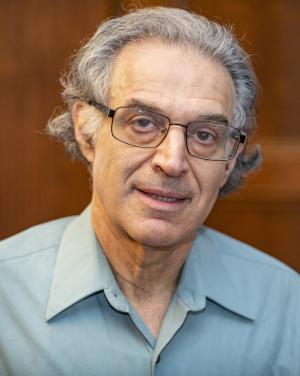
Yale University, PhD' 88
BIOGRAPHY
Kenneth Pomeranz is a University Professor of History and in the College; he previously taught at the University of California, Irvine. His work focuses mostly on China, though he is also very interested in comparative and world history. Most of his research is in social, economic, and environmental history, though he has also worked on state formation, imperialism, religion, gender, and other topics. His publications include The Great Divergence: China, Europe, and the Making of the Modern World Economy (2000), which won the John K. Fairbank Prize from the AHA, and shared the World History Association book prize; The Making of a Hinterland: State, Society and Economy in Inland North China, 1853–1937 (1993), which also won the Fairbank Prize; The World that Trade Created (with Steven Topik, first edition 1999, 3rd edition 2012), and a collection of his essays, recently published in France. He has also edited or co-edited five books, and was one of the founding editors of the Journal of Global History. He is a fellow of the American Academy of Arts and Sciences and has received fellowships from the Guggenheim Foundation, the American Philosophical Society, American Council of Learned Societies, the Institute for Advanced Studies, the National Endowment for the Humanities, and other sources. His current projects include a history of Chinese political economy from the seventeenth century to the present, and a book called Why Is China So Big? which tries to explain, from various perspectives, how and why contemporary China's huge land mass and population have wound up forming a single political unit.
Recent Research / Recent Publications
Coeditor with J. R. McNeill. Production, Destruction, and Connection, 1750–Present. Part 1: Structures, Spaces, and Boundary Making, The Cambridge World History, vol. VII (Cambridge: Cambridge University Press, 2015.
Coeditor with J. R. McNeill. Production, Destruction, and Connection, 1750–Present. Part 2: Shared Transformations? The Cambridge World History, vol. VII (Cambridge: Cambridge University Press, 2015.
Coeditor with Laura J. Mitchell and James B. Given. Worlds Together, Worlds Apart: A Companion Reader. New York: W.W. Norton, 2011.
La Force de L’Empire: Révolution industrielle et écologie, ou pourquoi l’angleterre a fait mieux que la Chine. Edited, with an introduction, by Philippe Minard. Alfortville: Éditions ère, 2009.
The book collects various pieces of my work previously published in English, with some previously unpublished material added in Chapter II.
Editor, The Pacific in the Age of Early Industrialization. Farnham: Ashgate Publishing, 2009.
Coeditor with Kate Merkel-Hess and Jeffrey Wasserstrom. China in 2008: A Year of Great Significance. Washington, DC: Rowman and Littlefield, 2009.
"Introduction: the Environment and World History" and "The Transformation of China's Environment, 1500–2000." In The Environment and World History, 1500–2000. Coedited with Edmund T. Burke III, 3–32, 118–164. Berkeley: University of California Press, 2009.
Coeditor with John McCusker, Stanley Engerman, David Hancock, and Lewis Cain. Encyclopedia of the History of World Trade. Farmington Hills, MI: Thomson Gale 2005.
The Great Divergence: China, Europe and the Making of the Modern World Economy. Princeton, NJ: Princeton University Press, 2000.
Coauthor with Steven Topik. The World that Trade Created: Society, Politics and an Emerging World Economy, Armonk, NY: M.E. Sharpe, 1999; fourth edition, 2017.
The Making of a Hinterland: State, Society and Economy in Inland North China, 1853–1937. Berkeley: University of California Press, 1993.
- "Repenser le changement économique de longue durée: La Chine, l’Europe, et l’historie comparée." In L'histoire économique en mouvement: entre héritages et renouvellements, edited by Jean Claude Daumas, 293–310. Villieneuve d’Ascq: Presses universitaires du Septentrion, 2012.
- "Contemporary Development and Economic History: How Do We Know What Matters?" Economic History of Developing Regions, special issue for World Economic History Congress 27, no. 1 (2012): 134–145.
- "The Great Divergence debate at 10—and at 250." Historically Speaking 12, no. 4 (September/October, 2011). Response to a forum on the tenth anniversary of the publication of The Great Divergence.
- "Areas, Networks, and the Search for 'Early Modern' East Asia." In Comparative Early Modernities, edited by David L. Porter. London: Palgrave, 2012.
- "Labor-Intensive Industrialization in the Yangzi Delta: Late Imperial Patterns and their Modern Fates." In Labor-Intensive Industrialization in Global History, edited by Kaoru Sugihara and G.M. Austin. London: Routledge, 2012.
- Coauthor with Daniel Segal. "World History: Departures and Variations." In A Companion to World History, edited by Douglas Northrop. New York: Wiley-Blackwell, 2012.
- "Advanced Agriculture." In The Oxford Handbook of World History, edited by Jerry H. Bentley, 246–266. Oxford: Oxford University Press, 2011.
- "Labeling and Analyzing Historical Phenomena: Some Preliminary Challenges." Cliodynamics: The Journal of Theoretical and Mathematical History 2, no. 1 (March 2011): 3–27.
- "Commerce." In The Oxford Concise Companion to World History, edited by U.C. Rublack, 105–128. Oxford, Oxford University Press, 2011.
- "Their Own Path to Crisis? Social Change, State-Building, and the Limits of Qing Expansion, ca. 1770–1840." In The Age of Revolutions in a Global Context, edited by David Armitage and Sanjay Subrahmanyam, 189–208. New York: Palgrave, 2010.
- "Putting Modernity in Its Place(s): Reflections on Jack Goody's The Theft of History." Theory, Culture, and Society 26, no. 7/8 (December 2009): 32–51.
- "Shang xia Taishan—Zhongguo minjian xinyang zhengzhi zhong de Bixia yuanjun (yue gongyuan 1500 nian zhi 1949 nian." (Up and Down Mt. Tai—Bixia Yuanjun in the Politics of Chinese Popular Religion, ca 1500–1949) Xin shixue 20, no. 4 (December, 2009): 169–215.
- "Le machinisme induit-il une discontinuité historique? Industrialisation, modernité précoce et formes du changement économique dans l’histoire globale." In Histoire globale, mondialisations, capitalisme, edited by P. Beaujard, L. Berger, and P. Norel, 335–373. Paris: La Découverte, 2009.
- "Calamities Without Collapse: Environment, Economy and Society in China, ca. 1800–1949." In Questioning Collapse, edited by Patricia McAnany and Norman Yoffee. Cambridge: Cambridge University Press, 2009.
- "The Great Himalayan Watershed: Agrarian Crisis, Mega-Dams, and the Environment." New Left Review 58 (July/August 2009): 5–39 (short version). Longer version published in The Asia-Pacific Journal: Japan Focus (July 27, 2009). Abridged version published in Engineering World (August/September 2009): 32–42.
- "World History and Environmental History: Introducing an Agenda," and "China's State, Economy and Environment in Global Perspective, 1400–2000." In Environmental History and World History, edited by both in Edmund Burke III and Kenneth Pomeranz, 3–32, 118–164. Berkeley: University of California Press, 2009.
- "Introduction: Industrialization and the pacific world ca. 1800-1930 - and beyond" In The Pacific in the Age of Early Industrialization, edited by Kenneth Pomeranz, xiii–xlix. Farnham: Ashgate, 2009.
- "Rekishi wa gurobaru kenkyu ni dono yō na kōken ga de suru ka?" (What Does History Have to Offer to Global Studies?). In Gurobaru Hisutori no Chōsen (Challenges of Global History), edited by Mizushima Tsukasa, 46–55. Tokyo: Yamakawa Shuppansha, 2008.
- "Land Markets in Late Imperial and Republican China." Continuity and Change 23, no. 1 (April 2008): 101–150.
- "Chinese Development in Long-run Perspective." Proceedings of the American Philosophical Society 152, no. 1 (March 2008): 83–100.
- "Social History and World History: From Daily Life to Patterns of Change." Journal of World History 18, no. 1 (March 2007). Chinese translation, 2009
- "Orthopraxy, Orthodoxy, and the Goddess(es) of Taishan." Modern China 33, no. 1 (January 2007): 22–46.
- "Limian jingji: Zhonghua diguo wanqi de nongcun shouru, feiwendingxing yu xigbie guifan" (The Economics of Respectability: Rural Incomes, Instability, and Gender Roles in Late Imperial China). Jindai Zhongguo funu shi yanjiu (Research on Modern Chinese Women’s History) 14 (December 2006): 205–241. A revised and translated version of "Women's Work and the Economics of Respectability." In Gender in Motion, edited by Bryna Goodman and Wendy Larson. Lanham, MD: Rowman and Littlefield, 2005.
- "Without Coal? Colonies? Calculus? Europe, China, and the Industrial Revolution." In Unmaking the West: "What-If" scenarios that Rewrite World History, edited by Ned Lebow, Geoffrey Parker, and Philip Tetlock, 241–276. Ann Arbor: University of Michigan Press, 2006.
- "Imperialism, Development, and 'Civilizing' Missions, Past and Present." Daedalus (April 2005).
- "Standards of Living in Eighteenth-Century China: Regional Differences, Temporal Trends, and Incomplete Evidence." In Standards of Living and Mortality in Pre-Industrial Times, edited by Robert Allen, Tommy Bengtsson, and Martin Dribe. New York: Oxford University Press, 2005.
- "Zhuanbian de diguo: Zhonghua diguo moqi de falu, shehui, shangyehua he guojia xingcheng" (An Empire in Transition: Law, Society, Commercialization, and State Formation in Late Imperial China). Zhongguo Xueshu 15 (Winter 2004).
- "Shijie jingji shi zhong de jinshi Jiangnan: bijiao yu zonghe guancha" (Early Modern Jiangnan in Global Economic History: Comparative and Integrative Perspectives). Lishi yanjiu 284 (August 2003): 3–48.
- "Women's Work, Family, and Economic Development in Europe and East Asia: Long-term Trajectories and Contemporary Comparisons." In The Resurgence of East Asia: 500, 150, and 50 Year Perspectives, edited by Giovanni Arrighi, Takeshi Hamashita, and Mark Selden, 124–172. London and New York: Routledge, 2003.
- "Beyond the East-West Binary: Resituating Development Paths in the Eighteenth Century World." Journal of Asian Studies 61, no. 2 (May 2002): 539–590.
- "Political Economy and Ecology on the Eve of Industrialization: Europe, China, and the Global Conjuncture." American Historical Review 107, no. 2 (April 2002): 425–446. Translated and reprinted in Globalgeschichte: Theoriean, Ansätze, Themen, vol. 1, edited by Sebastian Conrad, Andreas Eckert and Ulrike Freitag. Frankfurt: Campus Verlag, 2007. Also translated and reprinted in La Rivoluzione industriale tra l’Europa e il mondo, edited by Tommaso Detti and Giovanni Gozzinni. Milan: Pearson Paravia Bruno Mondadori, 2009.
- "Is there an East Asian Development Path? Long-Term Comparisons, Constraints, and Continuities." Journal of the Economic and Social History of the Orient 44, no. 3 (2001): 322–362. Abridged and translated versions published in Japanese and German, 2003.
- "Development, Disaggregation and Decline: Re-thinking the Chinese Economy, ca. 1730–1930." Itinerario (Winter 2001): 29–74. Translated version published in Chinese, 2010.
- "Ritual Imitation and Political Identity in North China: The Late Imperial Legacy and the Chinese National State Revisited." Twentieth-Century China (formerly Republican China) 23, no. 1 (Fall 1997): 1–30.
- "'Gentry Merchants' and Partnership Revisited: Family, Firm, and Financing in the History of the Yutang Enterprises of Jining, 1779–1956." Late Imperial China 18, no. 2 (June 1997): 1–38.
- "Power, Gender, and Pluralism in the Cult of the Goddess of Taishan." In Culture and State in Chinese History, edited by R. Bin Wong, Theodore Huters, and Pauline Yu. Stanford: Stanford University Press, 1997.
- "Local Interest Story: State‑Making and Capital Markets in Shandong Province, 1900–1937." In Chinese History in Economic Perspective, edited by Thomas Rawski and Lillian Li, 295–318. Berkeley: University of California Press, 1992.
- "Water to Iron, Widows to Warlords: The Handan Rain Shrine in Modern Chinese History." Late Imperial China 12, no. 1 (June 1991).
- Receives Dan David Prize, 2019.
- Publishes 4th edition (with Steven Topik) of The World that Trade Created (2017)
- Publishes Production, Destruction, and Connection, 1750–Present. Part 1: Structures, Spaces, and Boundary Making and Part 2: Shared Transformations?
- Leads Mellon Foundation Pilot Project on Professional Careers for Historian
- L'Ecole des Hautes Etudes en Sciences Sociales selects The Great Divergence as one of the top 40 books of the last 40 years.
- Delivers the Schouler Lectures on "Why Is China So Big?" at Johns Hopkins University (2014)
- Speaks on "Property Rights and Community Membership in the Late Imperial and Twentieth-Century Yangzi Delta," Neubauer Collegium, University of Chicago (2014) [video, 47 minutes]
- Delivers the University of Chicago Harper Lecture on the "Unique Patterns of Chinese Economic Development" [video, 85 minutes]
- Serves as president of the American Historical Association